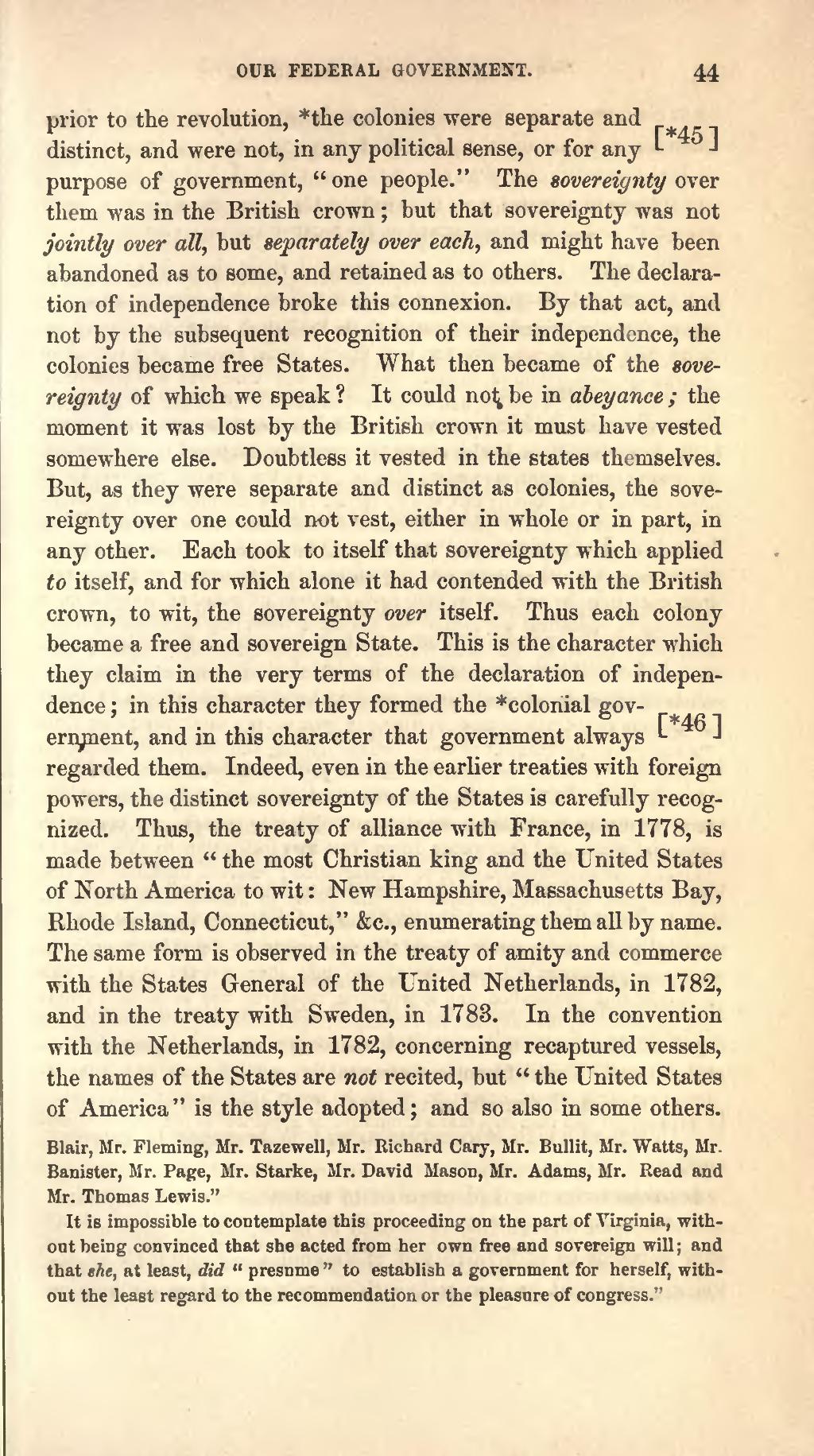prior to the revolution, [ *45 ]*the colonies were separate and distinct, and were not, in any political sense, or for any purpose of government, "one people." The sovereignty over them was in the British crown; but that sovereignty was not jointly over all, but separately over each, and might have been abandoned as to some, and retained as to others. The declaration of independence broke this connexion. By that act, and not by the subsequent recognition of their independence, the colonies became free States. What then became of the sovereignty of which we speak? It could not be in abeyance; the moment it was lost by the British crown it must have vested somewhere else. Doubtless it vested in the states themselves. But, as they were separate and distinct as colonies, the sovereignty over one could not vest, either in whole or in part, in any other. Each took to itself that sovereignty which applied to itself, and for which alone it had contended with the British crown, to wit, the sovereignty over itself. Thus each colony became a free and sovereign State. This is the character which they claim in the very terms of the declaration of independence; in this character they formed the [ *46 ]*colonial government, and in this character that government always regarded them. Indeed, even in the earlier treaties with foreign powers, the distinct sovereignty of the States is carefully recognized. Thus, the treaty of alliance with France, in 1778, is made between "the most Christian king and the United States of North America to wit: New Hampshire, Massachusetts Bay, Rhode Island, Connecticut," &c., enumerating them all by name. The same form is observed in the treaty of amity and commerce with the States General of the United Netherlands, in 1782, and in the treaty with Sweden, in 1783. In the convention with the Netherlands, in 1782, concerning recaptured vessels, the names of the States are not recited, but "the United States of America" is the style adopted; and so also in some others.
Blair, Mr. Fleming, Mr. Tazewell, Mr. Richard Cary, Mr. Bullit, Mr. Watts, Mr. Banister, Mr. Page, Mr. Starke, Mr. David Mason, Mr. Adams, Mr. Read and Mr. Thomas Lewis."
It is impossible to contemplate this proceeding on the part of Virginia, without being convinced that she acted from her own free and sovereign will; and that she, at least, did "presume" to establish a government for herself, without the least regard to the recommendation or the pleasure of congress."